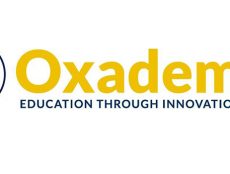
Articles
Editor’s Picks
Industry News
Career Karma Offers Guide to Coding Bootcamps
By Cait Etherington
July 10, 2019
Over the past decade, the coding bootcamp market has exploded with dozens of schools across the nation and around the world training people for high-paying jobs in tech both on-site and online. Navigating one’s options, however, is no easy task. Every coding school offers different programs at a different price and with different guarantees. Now, one company—Career Karma—is helping aspiring programmers and developers explore the coding academy market to make smarter decisions about which school is the right fit.
eLearning Insiderecently talked to Ruben Harris, the founder and CEO of Career Karma, to learn more about the Career Karma platform and to get a pulse check on the current state of the ever-evolving coding school market.
The Coding Bootcamp Market Now and in the Future
A few years back, the coding academy market appeared to be unstoppable. Back in 2015, coding schools graduated just over 10,000 students but by 2017, this number had soared to nearly 17,000. More recently, the market seems to have slowed slightly. Over the past 24 months several established schools, including Bloc.io, have been bought out by competitors. Still, in 2018 the industry remains very strong. According to Course Report, which tracks the coding academy market, in 2018, there were 95 in-person bootcamps and 13 schools operating online in more than 80 U.S. cities and nearly all U.S. states.
Harris attributes the industry’s ongoing growth to several factors including the rise of income share agreements(ISAs)—an agreement that essentially scales how much students pay for their training to their incomes post-graduation. “The bootcamp model is rapidly expanding across skillsets and the primary driver is income share agreements or ISAs,” he says. “We get a new bootcamp that has historically had the ISA option or recently added it to their offerings, asking to be a part of the Career Karma platform every week.” But Harris notes this isn’t the industry’s only driver at the moment: “We also get bootcamps focused on Sales, Marketing, Data Science et cetera wanting to be including as career paths for the Career Karma community as well.”
On this basis, Harris emphasizes that while consolidation may still be happening in the bootcamp industry, it hasn’t stopped the industry’s growth. “Certain entrepreneurs have learned what works and what doesn’t work and are increasingly introducing powerful new options,” explains Harris. These options vary, says Harris, and include “Part-time, full-time, and self-paced, accredited collaborations with colleges, living stipends, housing, food, laptops, employer as payer options with guaranteed jobs at the end, and other things that are required for a career transition for many individuals.”
Internationally, Harris also sees a lot of current activity. He points out that Microverse or HackerYou are among the schools currently gaining attention. Notably, both of these schools also offer income share agreements.
As for the future of coding bootcamps, Harris is optimistic: “Personally, I believe bootcamps are the only way to quickly address the skills gap and remain competitive in a tech-driven, global world.”
Employer Confidence In Coding Schools Is on the Rise
When coding bootcamps first emerged, some tech companies were skeptical. After all, how could a six-month certificate program match a four-year college degree in computer science or computer engineering. From Harris’s frontline perspective at Career Karma, employee skepticism continues to melt away, but they have no choice but to reassess how and who they hire.
As he notes, today, “Companies are increasingly realizing that they are going to have to build talent to remain competitive because their current supply of talent is tapping out. Apprenticeships are becoming more and more popular to fill these open jobs and we have seen companies like Adobe, Microsoft, and Cognizant partnering with bootcamps to train talent with guaranteed jobs at the end.”
Harris also observes, “On the flip side, while companies like Google, IBM et cetera are dropping the college degree requirement, it still remains a powerful signal for hiring managers that went to college and many CEO’s don’t even know that they have hired large amounts of bootcamp grads. While leaders like Tim Cook, CEO of Apple, are speaking out about the importance of vocational training and making it clear that a college degree is not a requirement, entrepreneurs need to make sure that companies are educated on how to hire from focused and accelerated training programs. This will especially be important for reskilling legacy employees in a rapidly changing world.”
How Career Karma Weeds Out the Industry’s Bad Apples
Recently, there has been some news about leaners being misled by coding schools—for example, told they will get a high-paying job at the end of their bootcamp but never seeing any real returns on their time and investment. Part of Career Karma’s mandate is to help potential learners steal clear of the coding academy industry’s rare bad apples.
“Career Karma only works with bootcamps that report their outcomes on the Council on Integrity Results Reporting (CIRR), report their numbers on their own, have a money back guarantee, an income share agreement option, deferred tuition, or that we have personally helped get jobs through that program,” says Harris. He further adds, “In the future, we will launch a software-driven way to get your bootcamp—‘Career Karma Approved’—that will be led by results from people that went through your program and got a job.”
But this raises another key question. When starting to look for a coding bootcamp, what types of questions should you be asking? According to Harris, the three most important questions you should ask yourself before you start looking for a coding bootcamp are as follows: Why do you want to learn how to code? Can you commit to a program for 12 months without quitting? And finally, have you prepared mentally and emotionally for moments when you might doubt yourself or your ability to continue? “
Most barriers to a career transition aren’t technical but psychological,” Harris observes. “If someone can commit with a clear understanding of why they are doing this, there is no doubt that they will be successful.”
Next Up for Career Karma
As employers across sectors desperately look for ways to scale their tech workforces and warm up to bootcamp graduates, it seems likely that the need for a platform like Career Karma will only expand. After all, as more people enroll directly in coding academies from high school or look to the industry to reskill or upskill in attempt to remain relevant as the Fourth Industrial Revolution disrupts the economy, more people will also be looking for ways to navigate the coding academy market.
To date, Career Karma already has over 17,000 users, and the platform continue to launch new offerings on a regular basis. “We are actively building pipeline management software for bootcamps to track activity in their application funnels in real-time, see how many people accepted their offers, and more,” says Harris. But Career Karma’s biggest commitment, says Harris, is “making sure we also give bootcamps a magical experience by giving them superpowers through our software.”
Photo by NESA by Makers on Unsplash.









No Comments